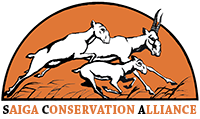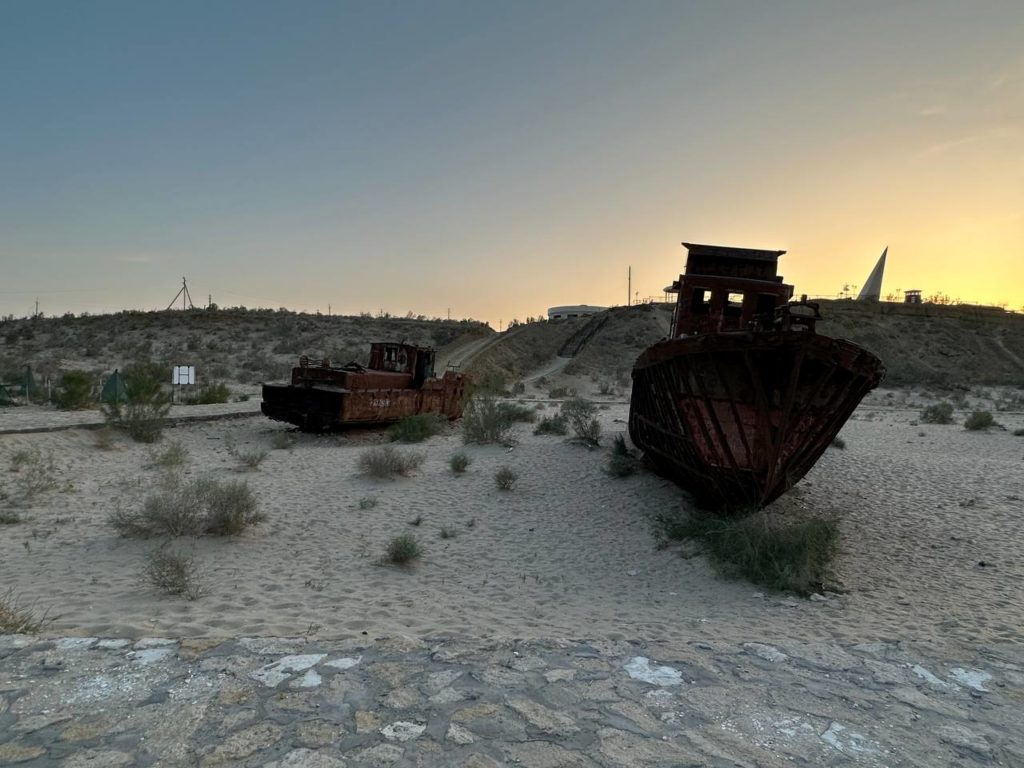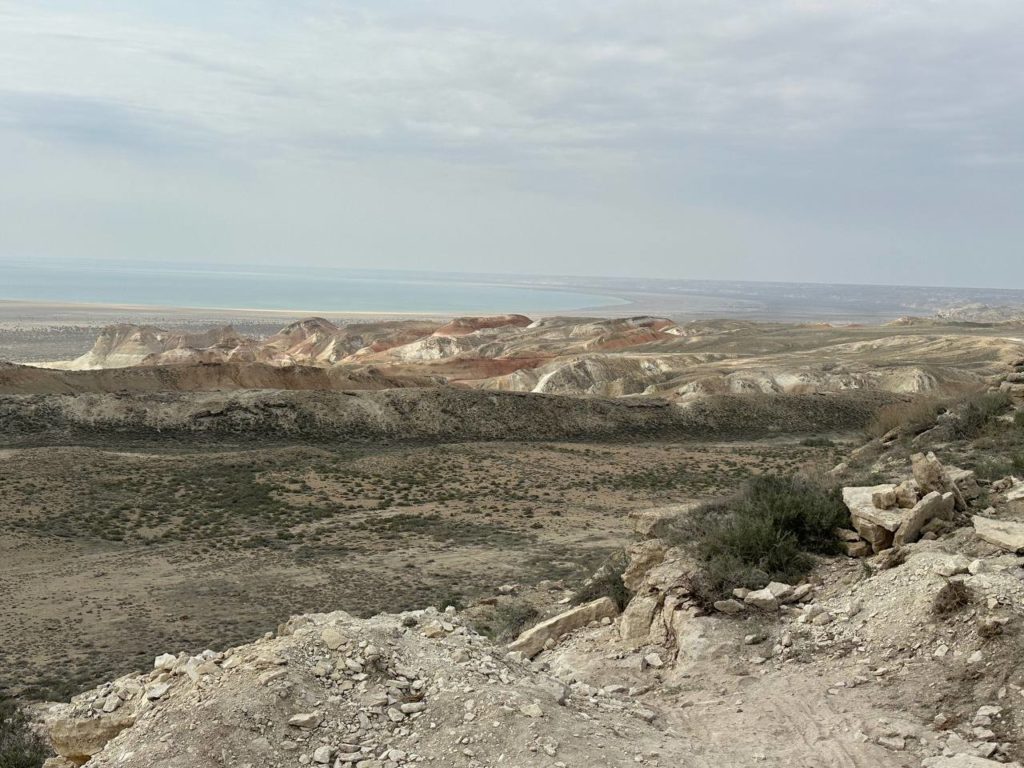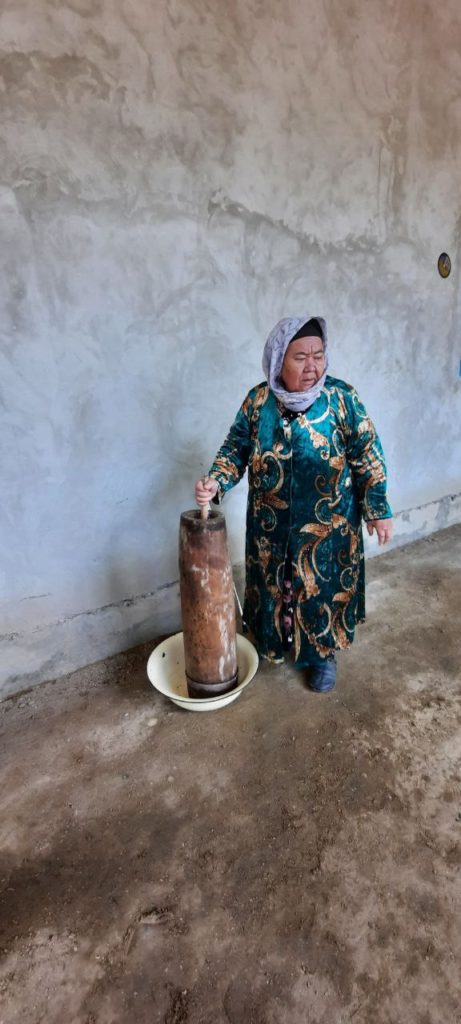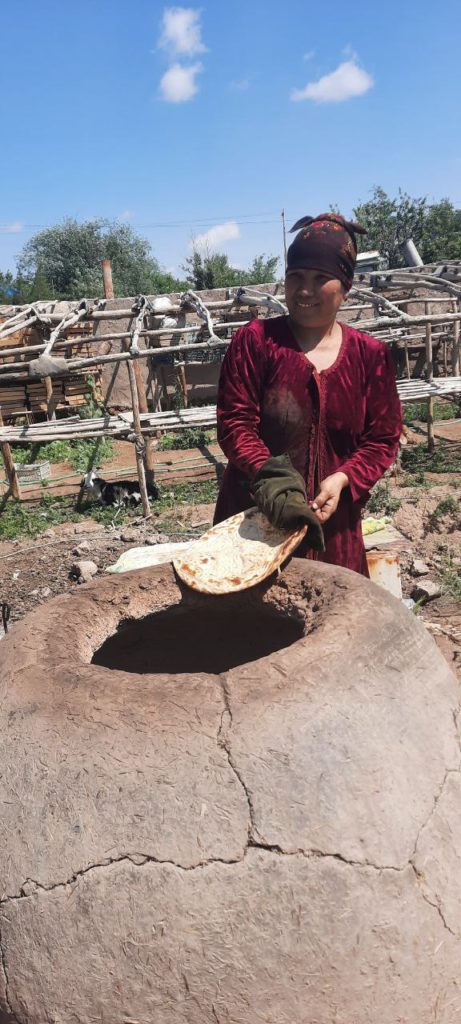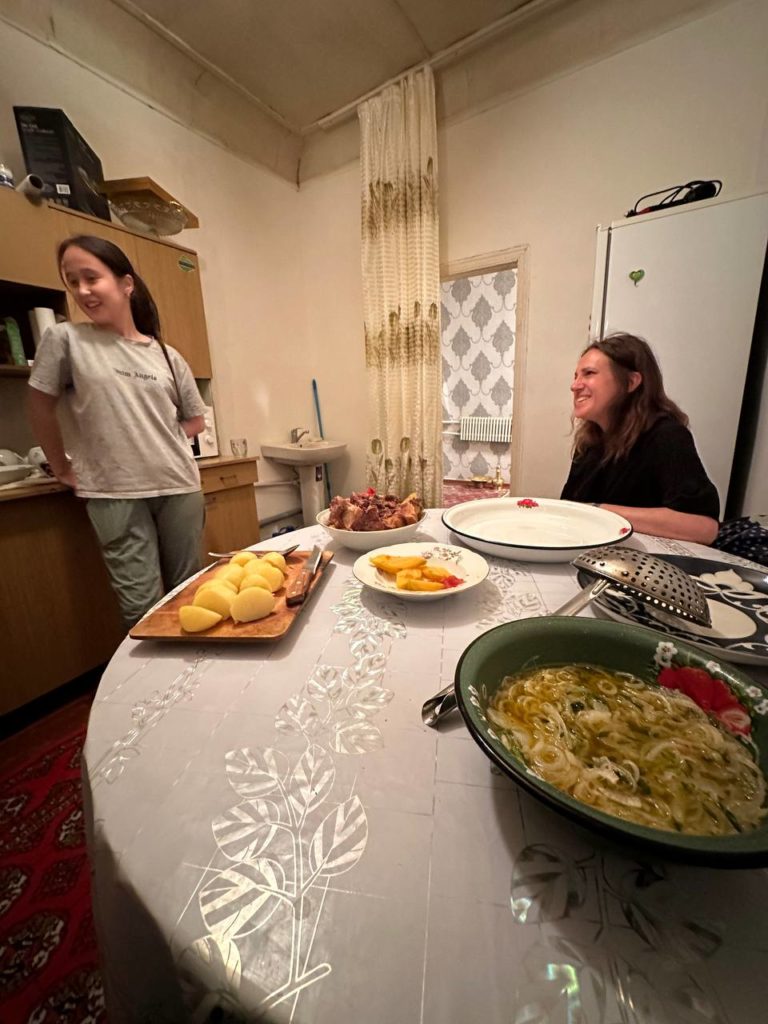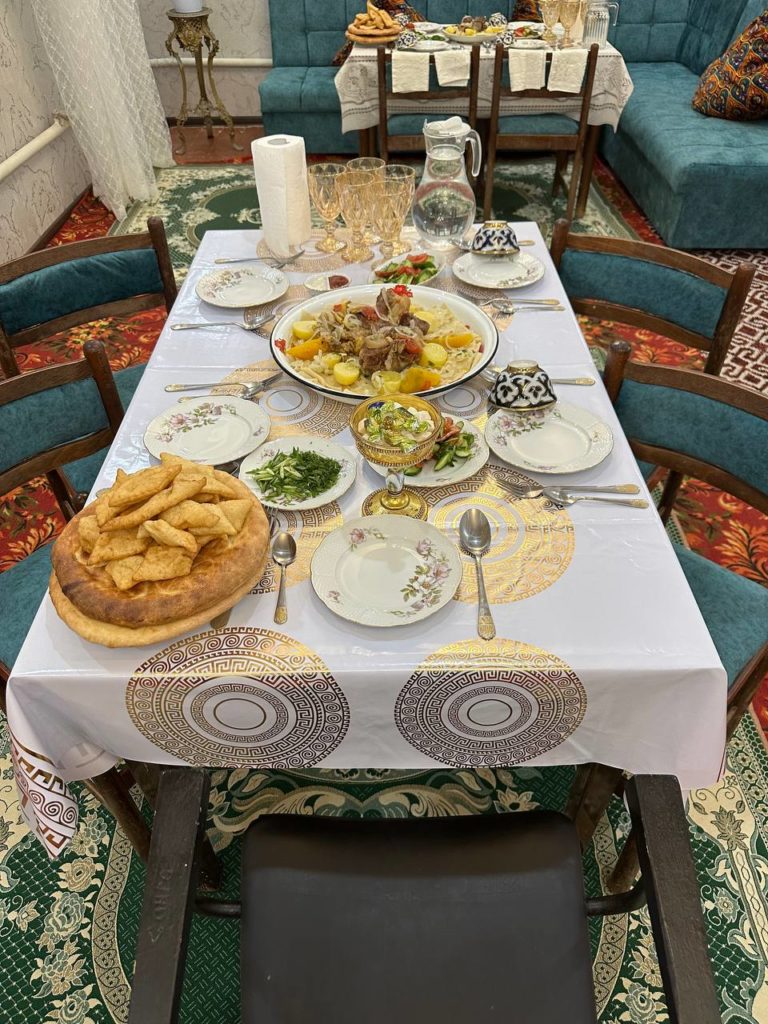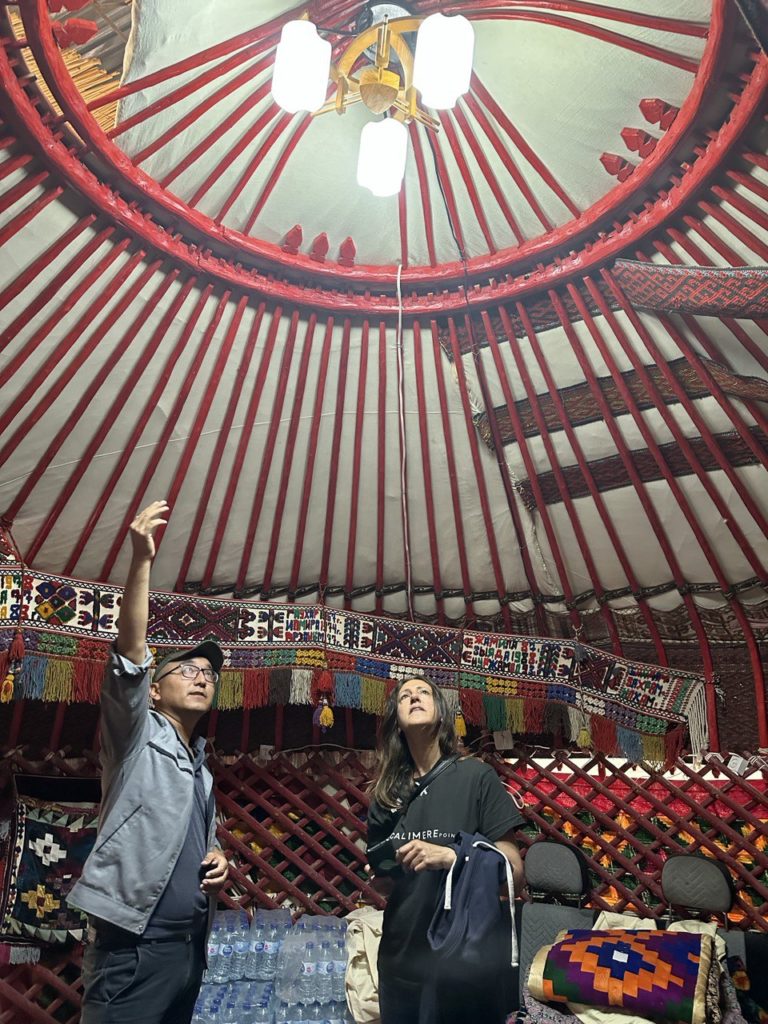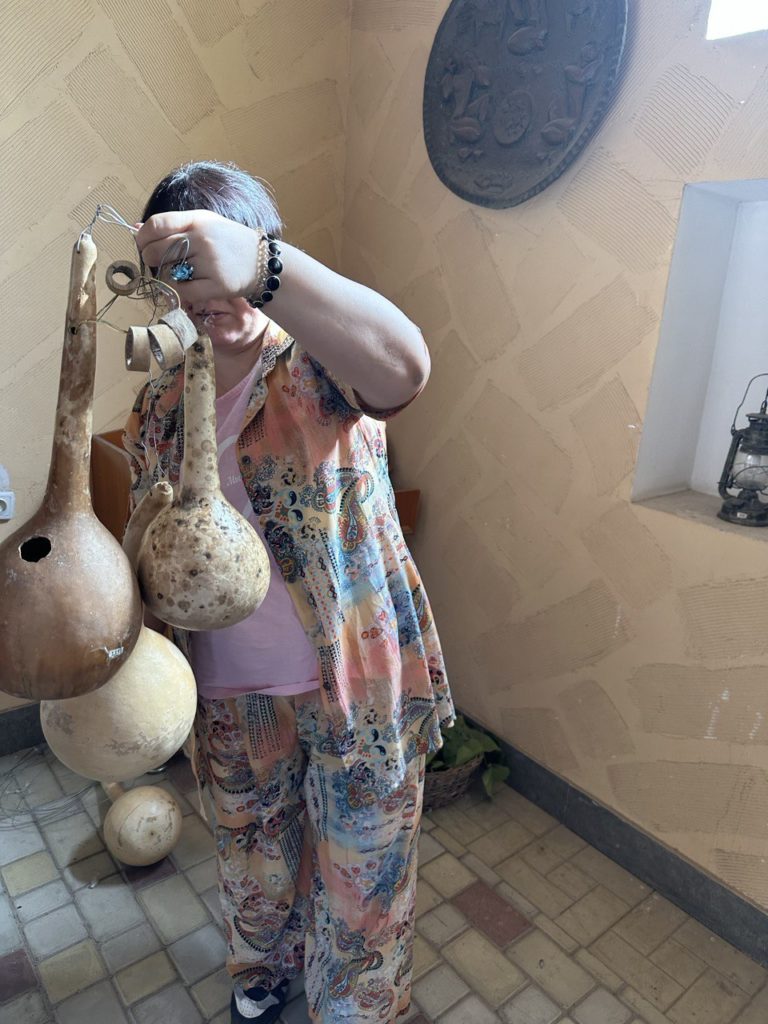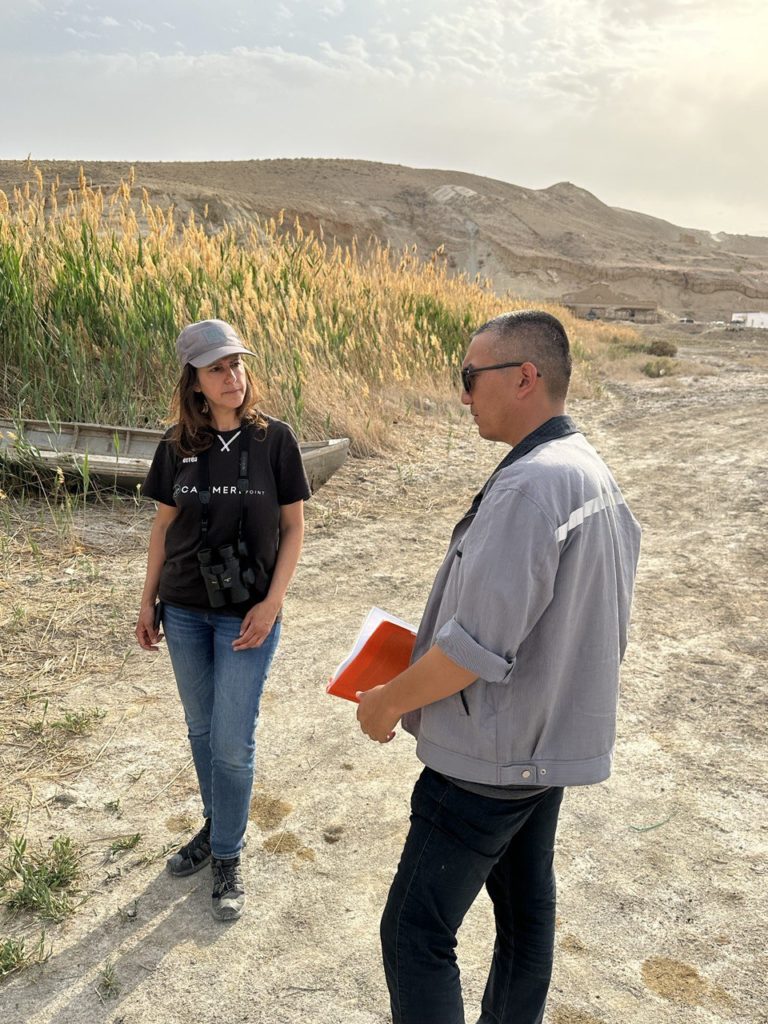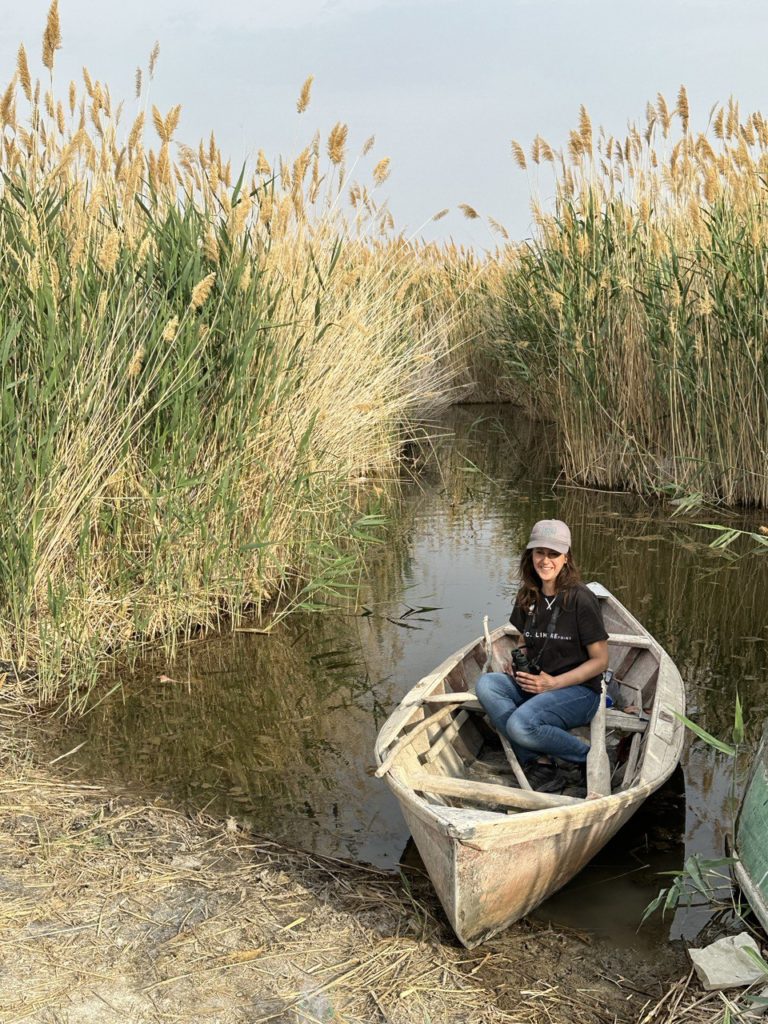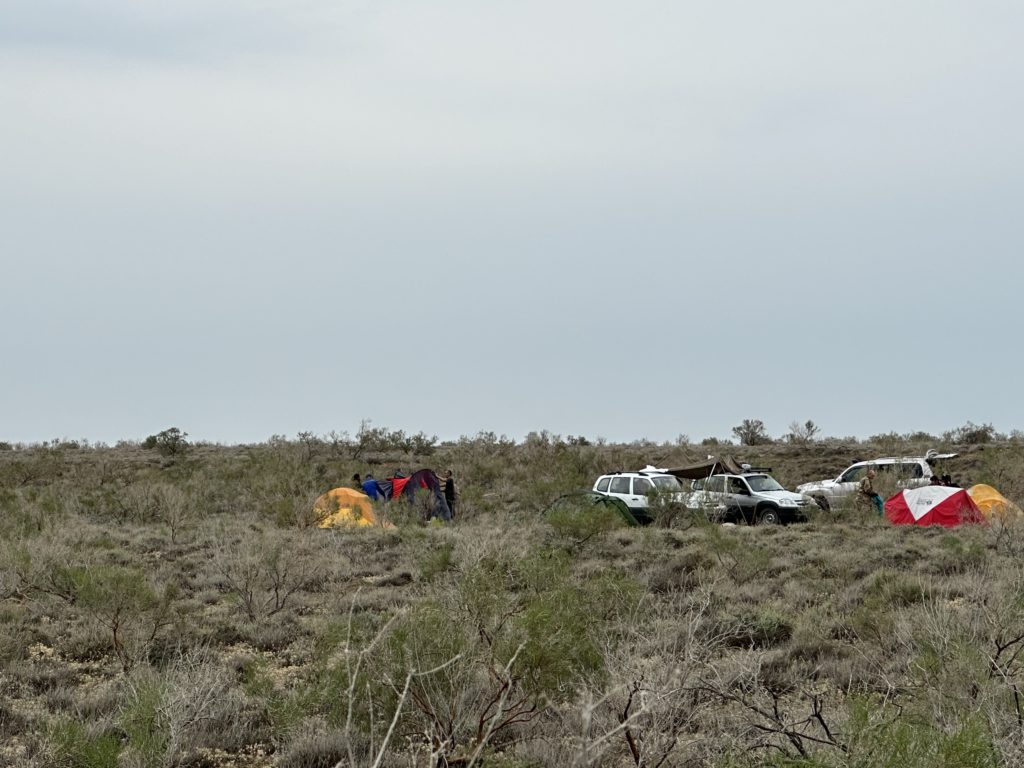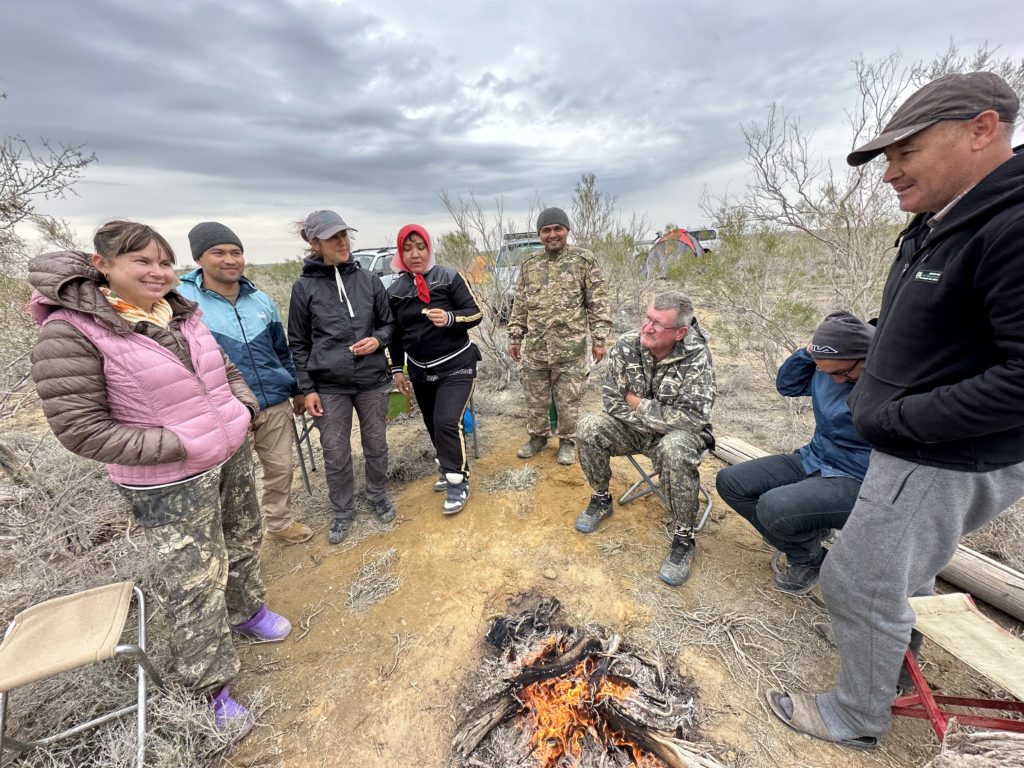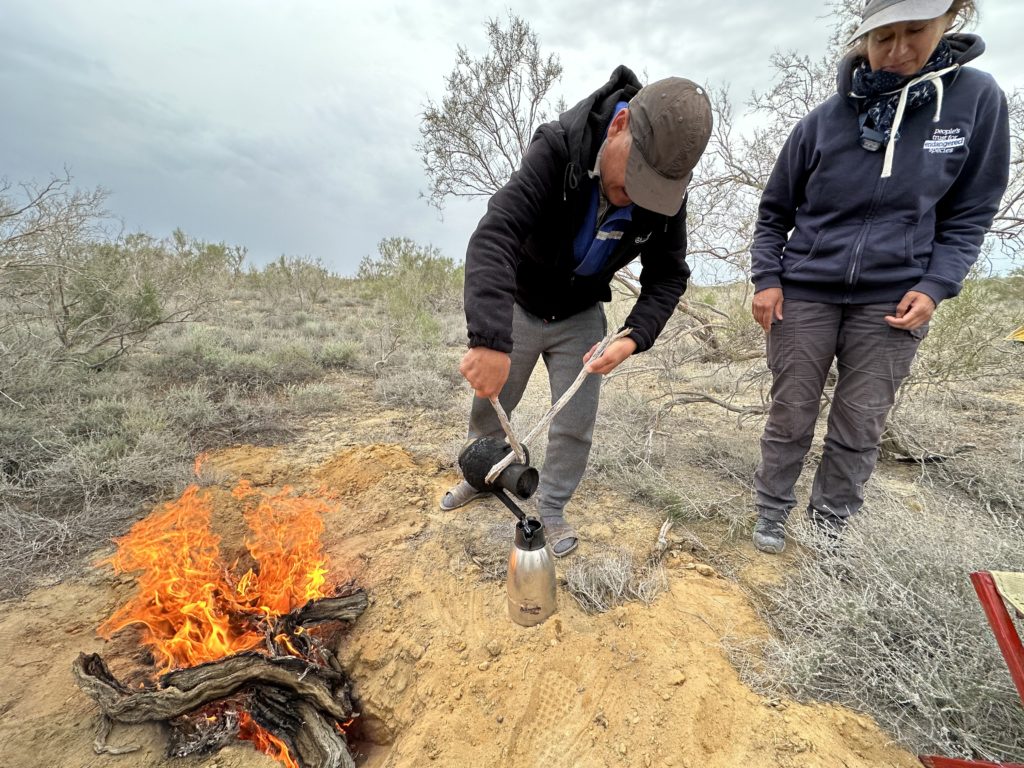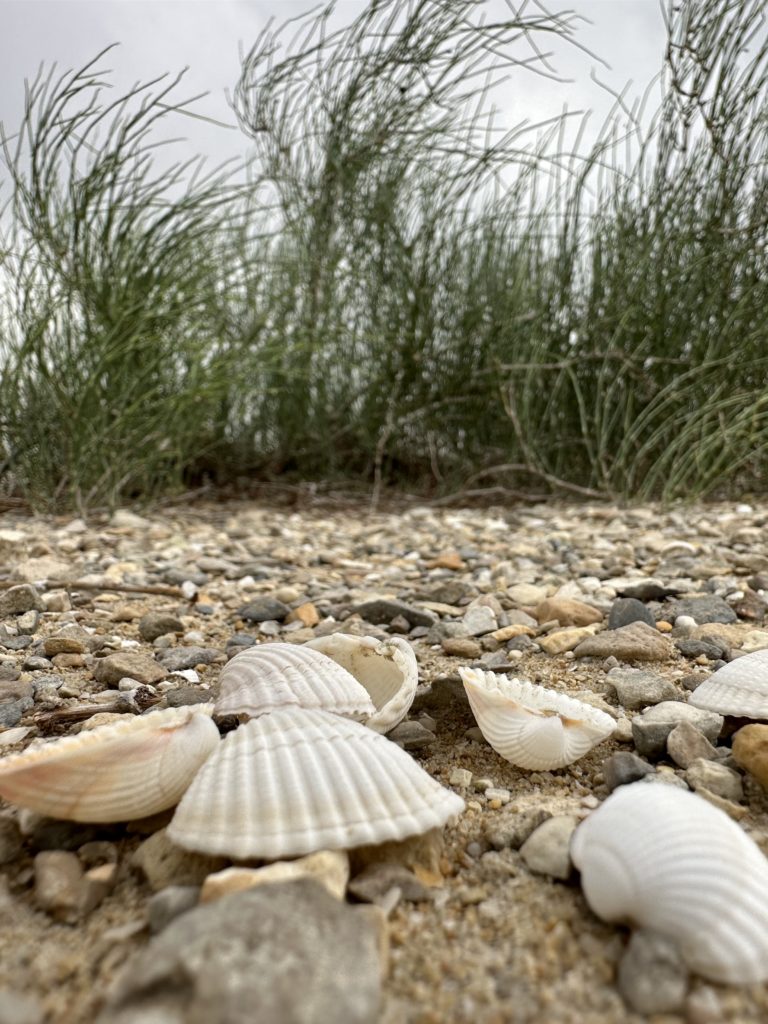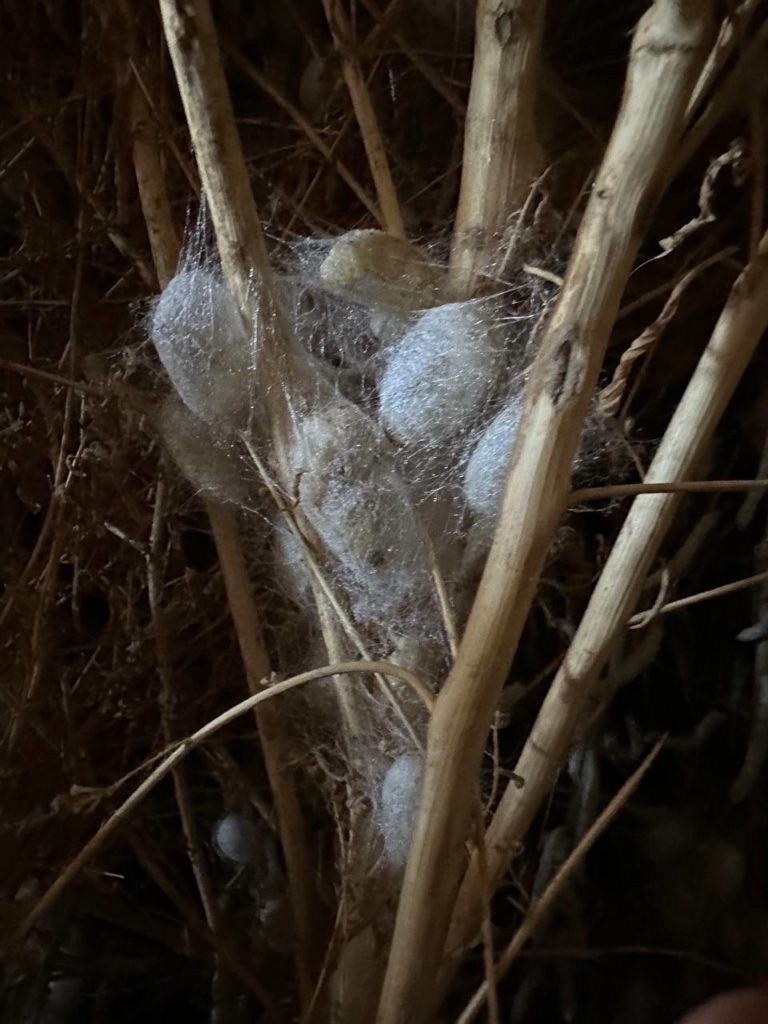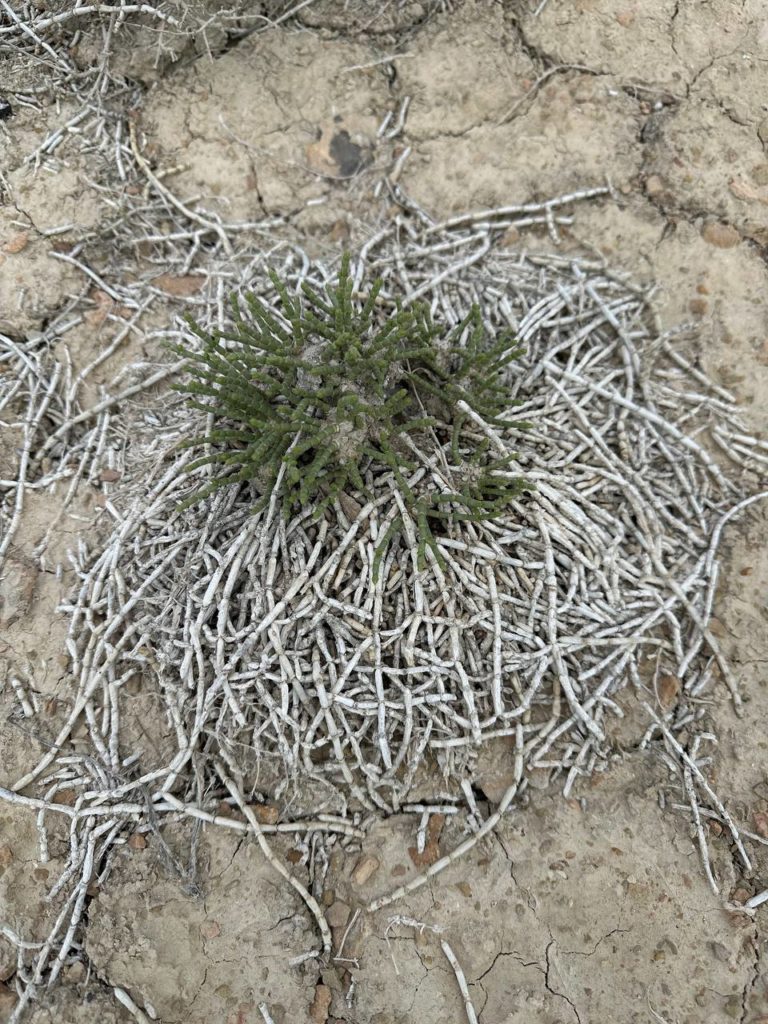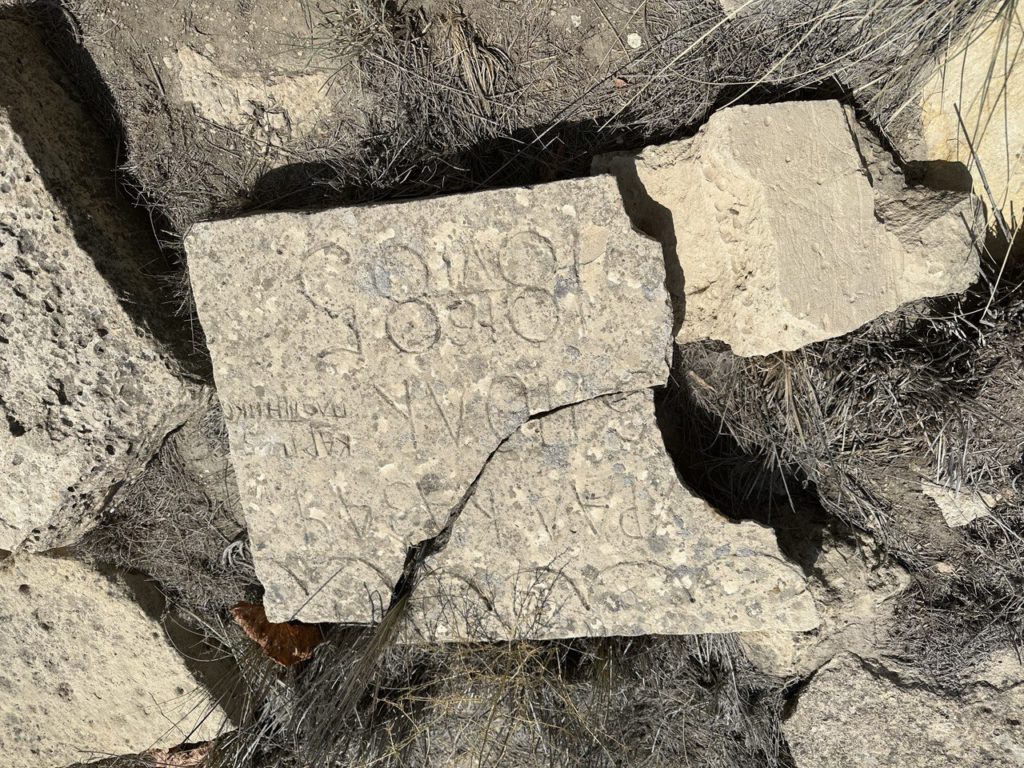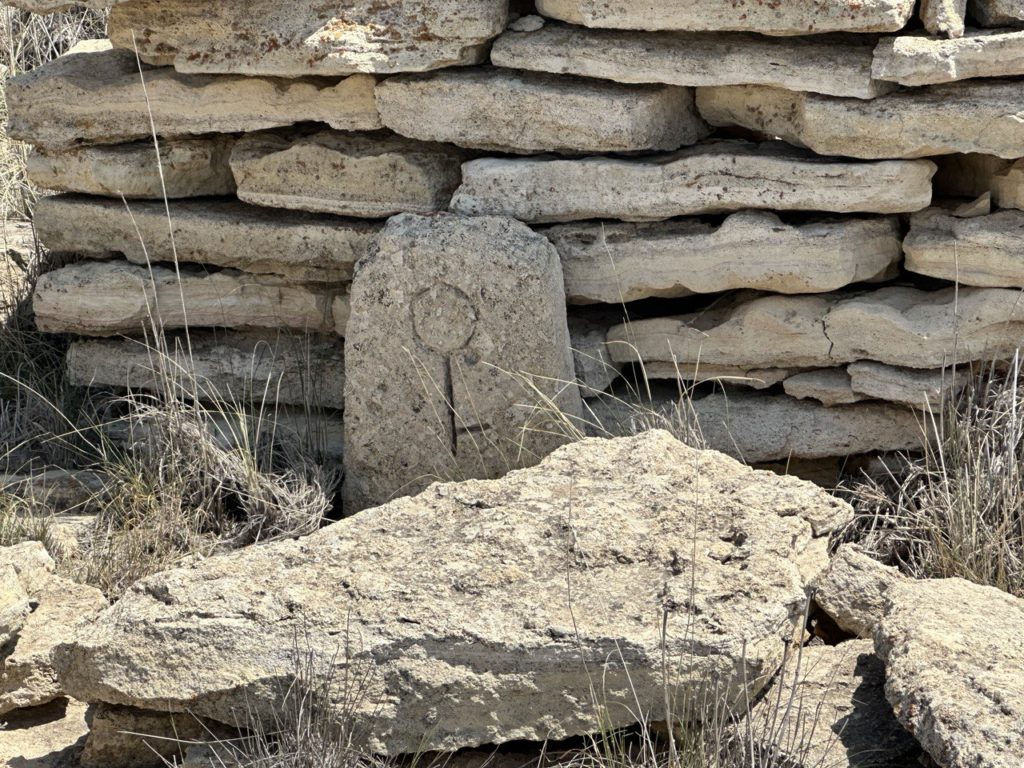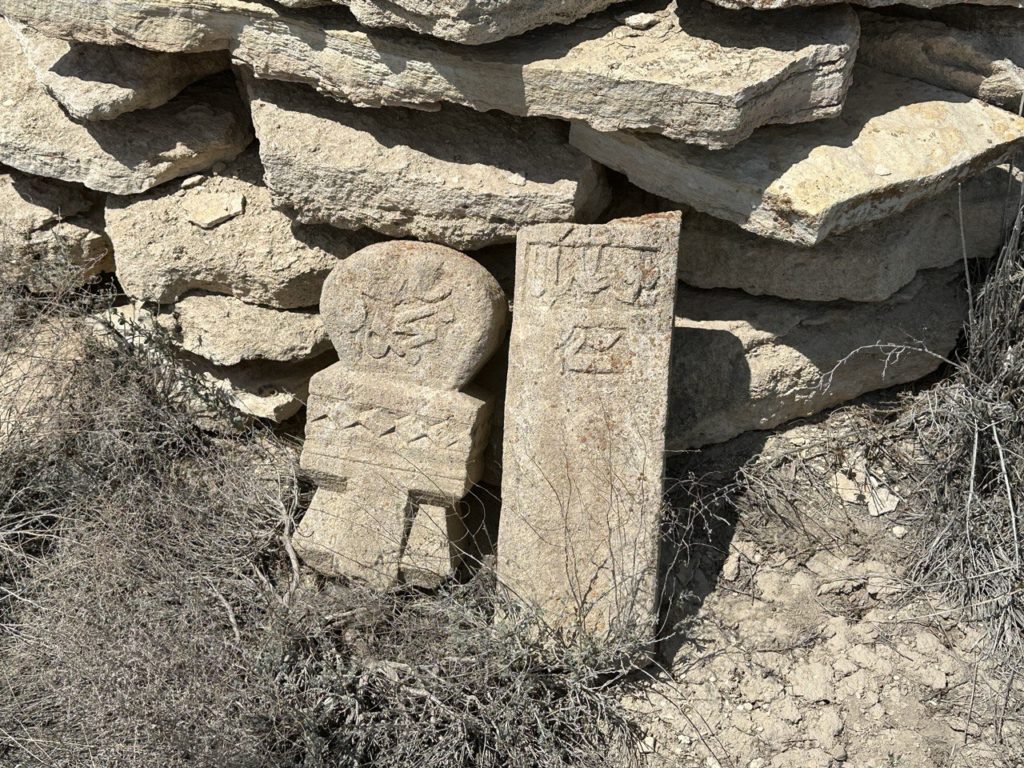In May 2023, a team comprising Nida Al-Fulaij, Elena Bykova, Zebo Isakova, and members of the Institute of Zoology in Uzbekistan embarked on an expedition to the Aral Sea region. Their goal was to explore and assess a potential route and itinerary for eco and cultural tourism, with a focus on supporting saiga antelope conservation in the region, in Aralkum National Park, and on Resurrection Island.
The week-long itinerary promises a mix of cultural, historical, archaeological, nature-based and wildlife attractions, providing an exciting, diverse and enriching travel experience in western Uzbekistan – a region often over-looked by the more well-visited regions closer to Tashkent.
To date, travel in the area has had a ‘disaster’ or ‘dark’ tourism focus but this expedition and the Resurrection Island project aim to shift the focus to the natural and cultural attractions, and wildlife of the region.
Following the exploratory expedition, the team reported back with their recommendations and learnings. In this blog post, we delve into the lure of the Aral Sea region and the crucial links between conservation and ecotourism, as highlighted during this field trip.
The links between conservation and ecotourism:
Conservation and ecotourism are closely linked, with ecotourism playing a significant role in promoting and supporting conservation efforts. Ecotourism involves visiting natural areas that are relatively unspoiled and participating in activities that have minimal impact on the environment. By attracting tourists to these pristine locations, ecotourism creates economic incentives for preserving and protecting the natural habitats and biodiversity found there.
One of the key benefits of ecotourism is that it raises awareness about the importance of conservation. When tourists visit ecologically sensitive areas and experience the beauty and uniqueness of these environments, they develop a deeper appreciation for nature and the need to protect it. This increased awareness can lead to greater support for conservation initiatives, both from tourists themselves and from the wider public.
Ecotourism can also provide direct financial resources for conservation efforts. The revenue generated from ecotourism activities, such as park fees, guided tours, and accommodation, can be invested in conservation projects, habitat restoration, and wildlife protection. By creating economic opportunities tied to the preservation of natural resources, ecotourism offers a sustainable approach to conservation and source of income for people in the region, where the well-being of local communities and the environment are mutually beneficial.
The decline of the Aral Sea:
The Aral Sea, once one of the world’s largest inland water bodies, has suffered from significant ecological decline due to excessive water diversion for irrigation purposes. As a result, the sea has shrunk dramatically, leaving behind vast expanses of dry, salt-encrusted land. Once thriving fishing communities that supplied the Soviet Union with vast quantities of fish, are now looking for other means to support themselves. Despite these challenges, the region has become a focal point for ecotourism, as visitors can witness the environmental consequences that man can inflict and the ongoing restoration efforts to recover ecosystems in the area.
The future of conservation and ecotourism in the Aral Sea:
Eco-tourism initiatives in the Aral Sea region aim to raise awareness about the environmental crisis and promote sustainable practices. Travellers have the opportunity to explore the abandoned ship graveyards, walk on the exposed seabed, and observe the stark landscapes that have emerged as a result of the sea’s retreat. This experience offers a unique perspective on the consequences of human actions on fragile ecosystems.
In the future, exploring and enjoying the unique cultural attractions found in adjacent unspoiled and pristine natural sites, such as the geological marvel “Dinosaur Eggs,” will play a significant role in boosting nature conservation efforts in the region. This form of tourism will have minimal impact on the environment while simultaneously improving the well-being of local populations through providing alternative economic activities.
Visiting sites that serve as habitats for little-studied plants like the Leontice leontopetalum, housing unique wildlife assemblages and showcasing breathtaking terrains, are alluring ecotourism opportunities. Dark sky destinations in the region offer fantastic star gazing activities. As a result, travellers will have the opportunity to immerse themselves in these natural wonders while contributing to the preservation of these delicate ecosystems.
The development of various forms of accommodation, like the enchanting yurt camp Besh qal’a, will allow tourists to experience local traditions and culture firsthand while being in close proximity to nature. They will also have access to a wide range of recreational activities such as swimming, bird watching, and walking in places like Sulama.
Combining ecotourism, agritourism, and rural tourism, where visitors can engage with agricultural production in rural areas, will prove highly attractive and effective. By focusing on relatively unspoiled natural areas, travellers will have the opportunity to explore regions off the beaten track, immersing themselves in the unique history, culture, and natural beauty of the region.
During our evaluation tour, we were delighted to experience traditional meals that not only met standards of quality, safety, hygiene, and comfort but were also environmentally friendly in their production methods. These meals provided an authentic taste of the region while showcasing the rich cultural traditions of the local communities.
The tourism industry in the region will predominantly rely on local products and labour, ensuring a low environmental impact and providing vital support to the local communities through job creation and utilisation of locally produced resources.
Conclusion:
With its abundance of unique attractions and vibrant cultural traditions, the Aral Sea region offers a comprehensive itinerary for travellers seeking an unparalleled travel experience. By implementing recommendations that promote sustainable practices, create flexible ecotourism packages, and foster partnerships with local stakeholders, conservation and ecotourism can thrive in this remarkable region.
Recommendations:
- Create a flexible ecotourism package tailored to the client’s wishes, incorporating different day trips and varying cultural aspects.
- Provide a guide book and maps with details of wildlife species and plants in each area.
- Conduct pre-trip information sessions or provide brochures detailing the history, geography, and climate of the area.
- Develop guidance for tourists to ensure respect for the landscape, wildlife, and other visitors, including instructions on litter disposal and restrictions on climbing delicate rock formations.
- Give guidance on collecting natural souvenirs and prohibit the purchase of souvenirs made from wildlife.
- Assist local communities in developing high-quality tour products through training and exchanges of experience.
- Provide reliable information to clients and educate them about local environmental issues and how to minimise their impact.
- Foster partnerships with tour operators, yurt camp owners, guides, and home-stay families for effective collaboration.
- Integrate ecotourism with agritourism and village tourism projects, allowing tourists to experience rural life, folk culture, and local customs.
Lessons Learned:
- Inform tourists in advance about the challenges and potential discomforts of ecotourism, including roughing it in natural environments.
- Establish safe and well-equipped stops for tourists, ensuring well-trained guides are present.
- Utilise video footage and images from camera traps to educate tourists about wildlife species and their behaviour.
- Encourage respect for wild animals and their habitats, emphasising the importance of understanding and appreciating the environment.
- Consider guided excursions with wildlife experts to enhance the vistors’ educational experience.
By implementing these recommendations and applying the lessons learned, the ecotourism experience can be enriched, ensuring the preservation of natural areas and providing an enjoyable and educational experience for tourists.
